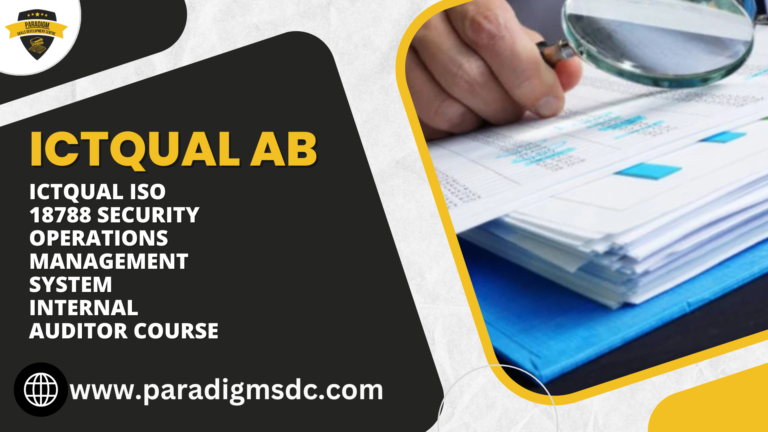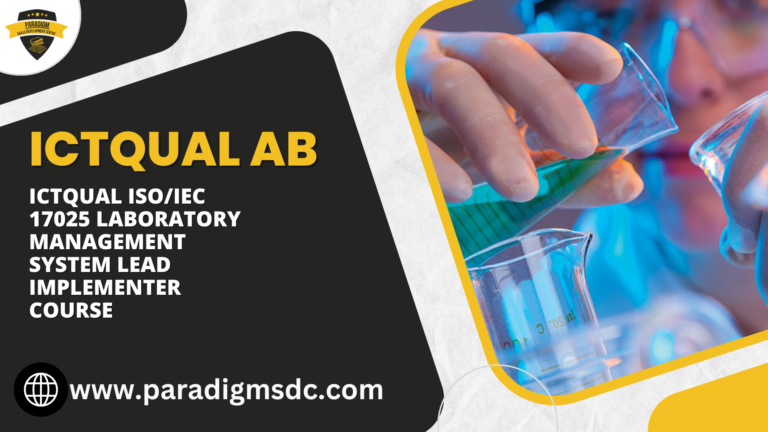Course Introduction
In today’s world, safeguarding vulnerable individuals is paramount. The ICTQual Level 2 Award in Safeguarding and Protecting Children, Young People, and Adults at Risk is designed to equip learners with the knowledge and skills required to protect these groups from harm and abuse. This course is essential for anyone working with children, young people, or adults who may be at risk, ensuring they can recognize, respond to, and report safeguarding concerns effectively.
Course Overview
The ICTQual Level 2 Award in Safeguarding and Protecting Children, Young People, and Adults at Risk provides comprehensive training on safeguarding principles and practices. It covers key areas such as understanding the types of abuse, recognizing the signs of abuse, and knowing the appropriate actions to take when safeguarding concerns arise. The course is structured to provide a thorough understanding of legal and ethical responsibilities, ensuring learners are well-prepared to handle safeguarding issues in various settings.
Course Study Units
The course is divided into several study units, each focusing on critical aspects of safeguarding:
- Introduction to Safeguarding
- Types of Abuse and Neglect
- Risk Assessment and Management:
- Reporting Procedures
- Communication Skills
- Legal and Ethical Considerations
- Promoting Safer Environments
Learning Outcomes
Upon completing this course, learners will be able to:
Introduction to Safeguarding
- Define safeguarding and explain its significance in protecting children, young people, and adults at risk.
- Identify relevant legislation and policies that guide safeguarding practice.
- Understand your legal and ethical duties as a mandated reporter in safeguarding situations.
- Explain the different forms of abuse (physical, emotional, sexual, neglect, etc.) and their potential impact.
2. Types of Abuse and Neglect
- Recognize the indicators of various forms of abuse in children, young people, and adults at risk.
- Analyze the physical and mental health consequences of abuse on vulnerable individuals.
- Describe appropriate procedures for responding to disclosures of abuse.
- Explain the process for reporting suspected abuse to relevant authorities.
3. Risk Assessment and Management
- Explain the importance of clear communication in safeguarding practice.
- Develop strategies for building positive and trusting relationships with those you work with.
- Identify methods to create a safe and supportive environment within your workplace or setting.
- Analyze risk management strategies to minimize the likelihood of abuse occurring.
4. Reporting Procedures
- Describe the principles of multi-agency working in safeguarding situations.
- Explain the importance of confidentiality and information sharing within safeguarding procedures.
- Identify the roles and responsibilities of different agencies involved in safeguarding (e.g., social services, police).
- Demonstrate proper record-keeping practices for safeguarding concerns.
5. Communication Skills
- Apply effective verbal and non-verbal communication techniques when interacting with vulnerable individuals.
- Practice active listening skills to build trust and encourage disclosure.
- Use clear and concise language when reporting safeguarding concerns.
6. Legal and Ethical Considerations
- Analyze the legal framework surrounding safeguarding, including relevant legislation and case law.
- Discuss the ethical principles that guide safeguarding practice (e.g., confidentiality, the duty of care).
- Identify potential ethical dilemmas that might arise in safeguarding situations and explore appropriate responses.
7. Promoting Safer Environments
- Develop strategies to identify and address potential risks within your work setting.
- Promote a culture of openness and awareness about safeguarding issues.
- Contribute to the development and implementation of safeguarding policies within your workplace.
Course Benefits
- Enhanced Knowledge: Gain a deep understanding of safeguarding principles and practices.
- Practical Skills: Develop the ability to recognize and respond to safeguarding concerns effectively.
- Professional Development: Enhance your credentials and increase your employability in roles involving vulnerable groups.
- Legal Compliance: Ensure compliance with legal requirements and best practices in safeguarding.
- Confidence: Build confidence in handling safeguarding issues, knowing you are equipped with the right knowledge and skills.
Who is this Course For?
This course is ideal for:
- Teachers and educational staff
- Health and social care workers
- Childcare providers
- Youth workers
- Volunteers and community workers
- Anyone responsible for the welfare of children, young people, or vulnerable adults
Future Progression
Upon successful completion of the ICTQual Level 2 Award in Safeguarding and Protecting Children, Young People, and Adults at Risk, learners can progress to higher-level safeguarding courses or related qualifications, such as:
- ICTQual Level 3 Award in Safeguarding and Protecting Children and Young People
- ICTQual Level 3 Diploma in Health and Social Care
- Specialized courses in child protection, adult protection, or safeguarding leadership roles
By advancing your safeguarding knowledge and skills, you can take on more significant responsibilities in ensuring the safety and well-being of vulnerable individuals in your professional or volunteer roles.







